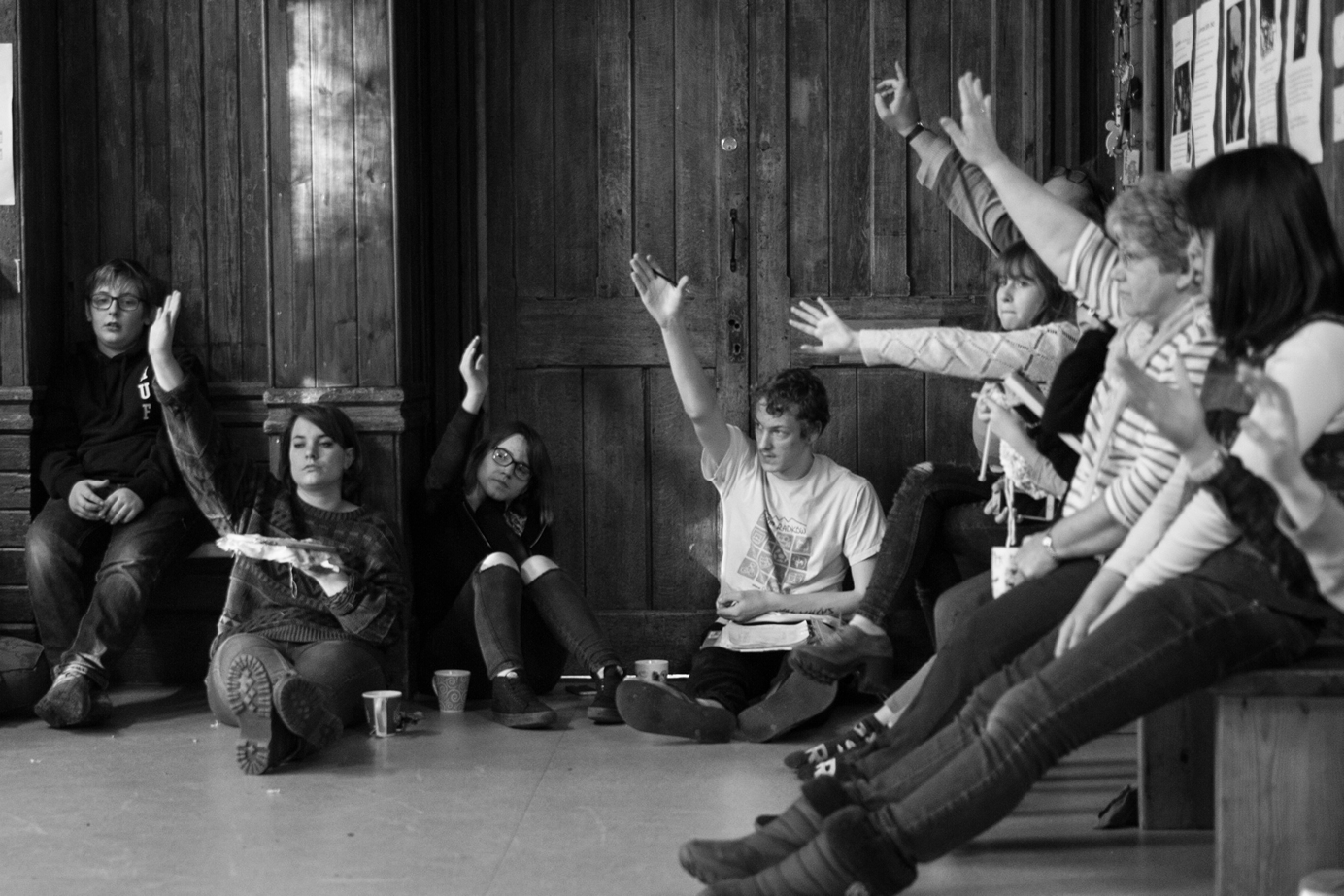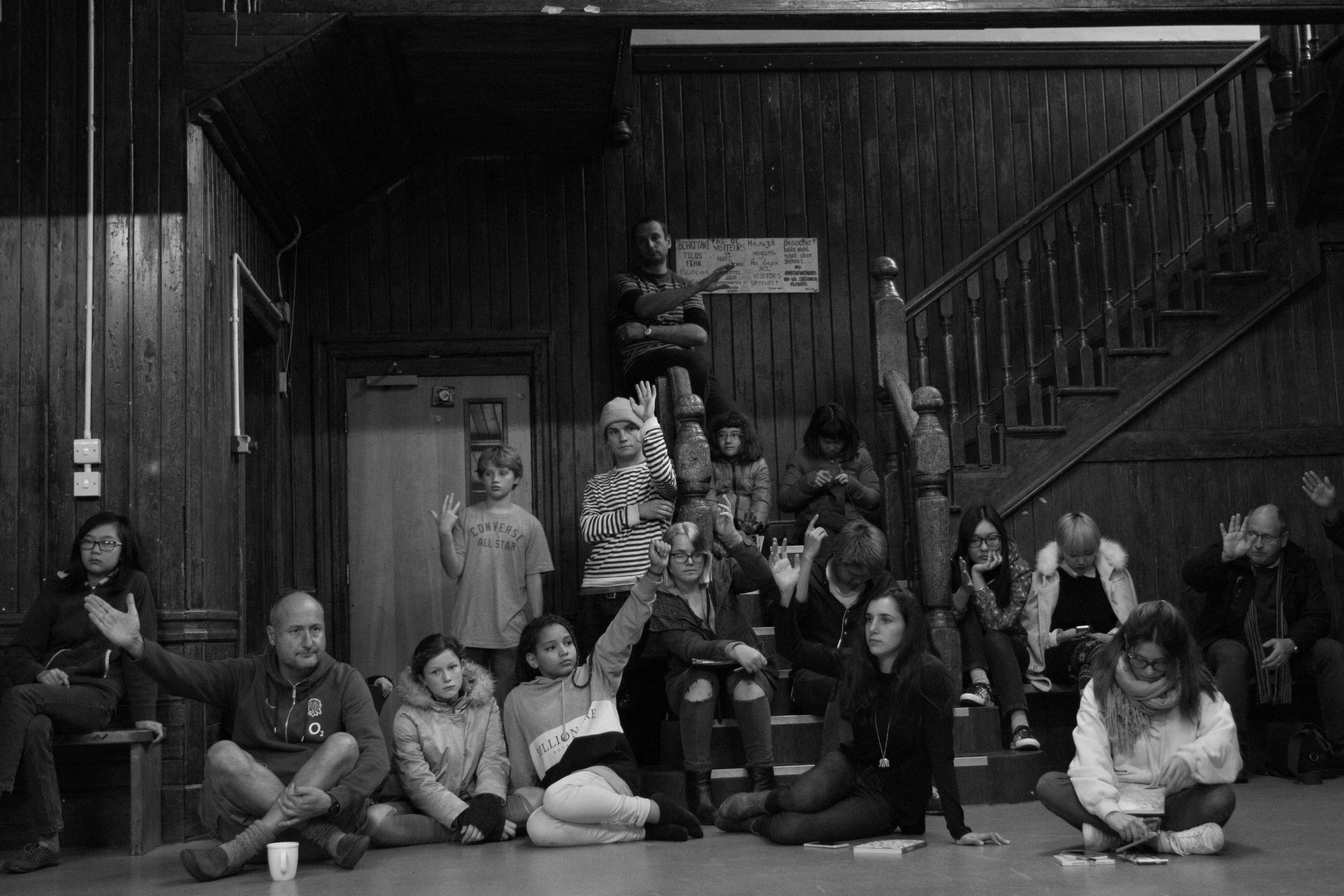“Self-government at Summerhill is a well-oiled machine, having been in operation since the school began in 1921. Each child coming into the school joins the machine and begins, from the first day to learn the process of democracy and decision-making. This ensures that there is no sense of lawlessness or anarchy but a safe, structured environment governed by adults and children alike.
Summerhill is a self-governing community
The school is democratic – each person having an equal vote in the school meetings and an equal right to be heard, the community of adults and children make their own rules and decisions. Twice a week the Summerhill community meets together to discuss issues, hear grievances and mete out sanctions to those who are “brought up”. From this experience children learn to be self-confident, tolerant and considerate, being acustomed to hearing the other person’s point of view. The meeting is a strangely formal occasion and visitors have often remarked how much more orderly it is than the UK House of Commons!
If children from most standard families suddenly had self-government it could be hard for them to settle and manage their lives successfully. One has to learn to be an effective decision maker, and, like everything else, it doesn’t come naturally without some experience.
New children at Summerhill join a mature working unit of self-government with a hundred years of experience behind it. They learn as part of the unit about democracy, their own rights, and those of other people. But most of all they learn to take responsibility for themselves and for others.
In Summerhill, because of the freedom they have, most of the older pupils are already socially responsible and are used to thinking about the needs of the group rather than their own. This does not mean that we never have disputes or disagreements – one of the important things we have learned here is that the needs of young children, older children and adults can be very different indeed! What is important is that we all recognise these differences and try to negotiate a mutually agreeable solution to any problem, instead of the adults just making up the rules to suit themselves.
A typical Meeting case may be this one as we had a while ago. The older children in the school wanted to have no bedtimes and proposed that they could stay up as late as they liked provided that they stick to the silence hour, which is 10.30pm. There was a long discussion about it as many people had things to say on the subject. Some were worried about the possible noise, others about lack of sleep. Eventually the vote was taken and it was carried that they try it for one week, to see if it would work. After a few days, there was a Special Meeting because somebody had been woken up several times in the night. The community decided that they should have a bedtime back again.



